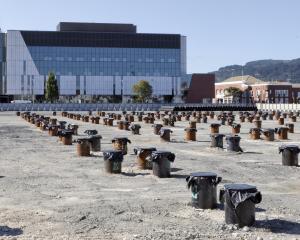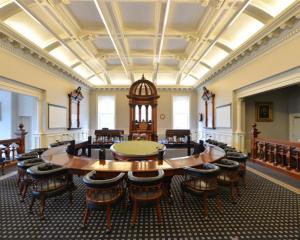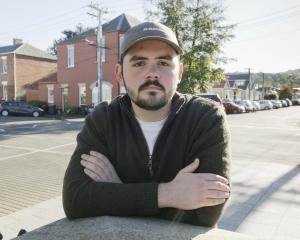And despite the criticism both the council and its staff sometimes received, Mr Sligo said he had a high opinion of the organisation in which he had spent the past 36 years.
"I'm immensely proud of it. I mean, you're not working for overseas shareholders - you're working for the shareholders of Dunedin, the shareholders of the community.
"Of course, there are going to be differences of opinion about what's best for the city, but there will always be differences of opinion about what's best for the city.
"By the same token, I think it's a great thing to be working for the people, for the community."
Mr Sligo (66), who has worked for the council since Jim Barnes was mayor, is highly regarded by his fellow staff members.
In his role as special projects officer he has seen the effects of projects he believes have made the city a better place.
Born and raised in Dunedin, Mr Sligo began work for the council in 1975, starting in the equivalent of what is now human resources, before becoming committee clerk, a position now known as governance support officer, and being ap-pointed returning officer.
He has played a role in Dunedin's relationship with its sister city Otaru, served on the council's ward boundary review team and hung in through restructuring and amalgamation.
In 1990, he was appointed to the position of special projects officer, reporting to then chief executive Murray Douglas, dealing with projects with no precedents or which involved multiple departments.
"It steadily moved more into urban design," he said this week.
"I continued the role, but it was part of the architecture and urban design department under the city architect Robert Tongue.
"They had some tremendous projects. Obviously, I wasn't part of the design team, but I was part of the team anyway. If you look at the [St Clair] Esplanade, the Moana Pool extensions ... it was tremendous to be associated with all that stuff."
One project that stood out was the long-running work to deal with the effects of erosion at St Clair and St Kilda beaches, a project still to be completed.
Being part of that team was "immensely satisfying" because of the significant challenge the city faced, the shortage of the expertise required and the "enormous" amount of public consultation undertaken.
Another highlight was the renovation of the Octagon, with its lighting and extensive paving work, and of lower Stuart St and south to the Exchange, in the 1990s.
"It made an enormous difference, I think, to the way people felt about the city," Mr Sligo said.
"I mean, everybody owns the main street, not just if you're a retailer or shop owner ... Everybody who walks down the main street owns the main street or feels good about it."
Special projects officer was not his last role at the council.
When he retired this week, it was from the position of business development team leader, a role he moved into three years ago, in the department responsible for managing community assets and recreation services.
Like many retiring, Mr Sligo said it was the friends and colleagues at his workplace he would miss, along with the banter and the challenges thrown up by the job.
"But, you know, there are different challenges I'm keen to have a go at."
Those included mountain biking around the tracks of Otago and " a wee catamaran waiting for me in Wanaka that hasn't been on the lake recently".
Mr Sligo has a crib in the central Otago town, and plans to spend plenty of time in the area.
"There's an awful lot of back country up there. It's a great back yard."












